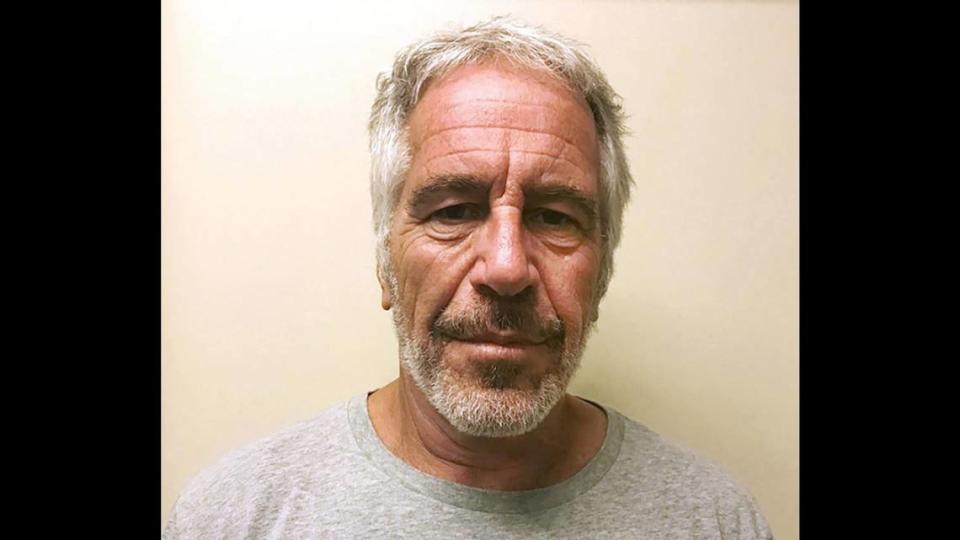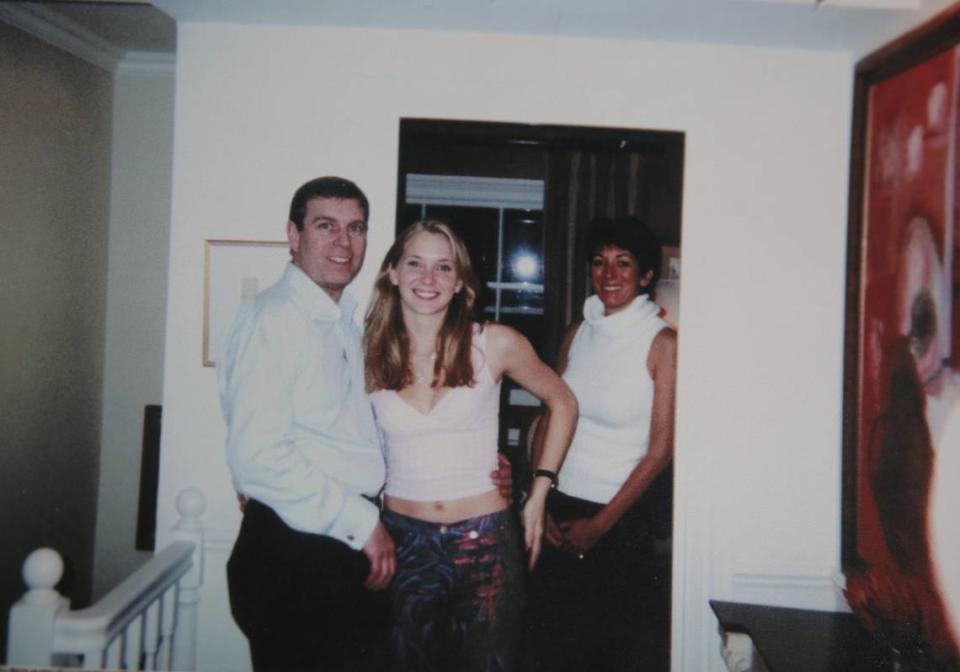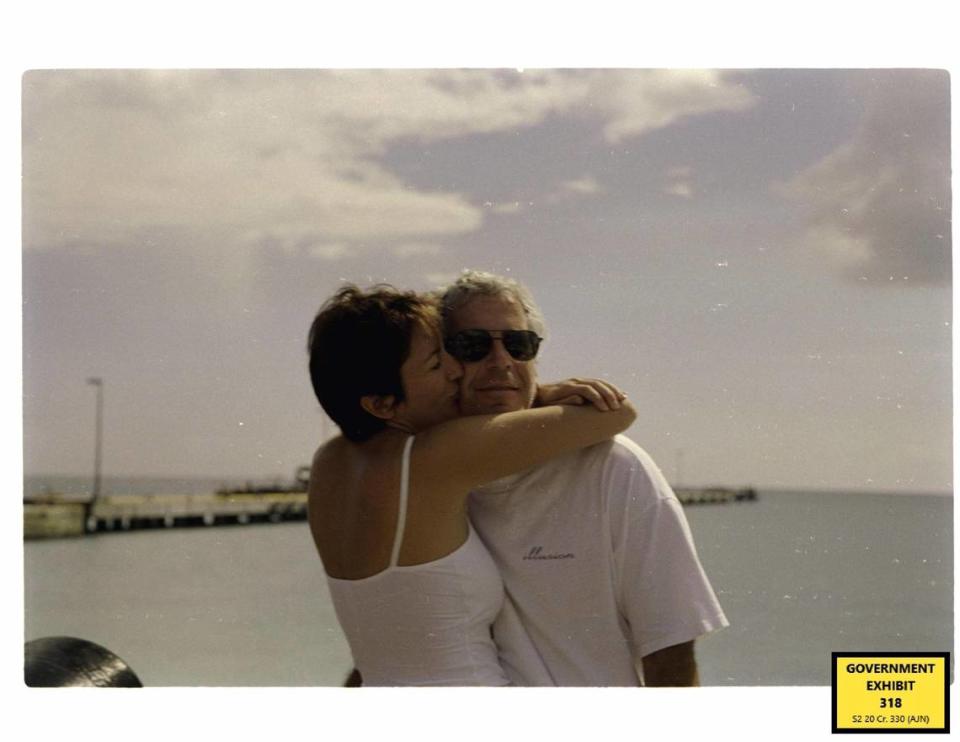Key accuser of Ghislaine Maxwell not expected to testify in her trial
The prosecution in the Ghislaine Maxwell sex-trafficking case is about to rest — weeks ahead of schedule — with one of Maxwell’s most prominent accusers conspicuously absent from the witness list.
Virginia Roberts Giuffre — who has previously cast Maxwell as a central player in Jeffrey Epstein’s sex-trafficking operation — apparently isn’t going to testify, even though she has been mentioned by witnesses and prosecutors almost daily during the trial: as a minor who visited Epstein’s homes multiple times; as a girl who had sex with Epstein; as a victim who was allegedly recruited by Maxwell; and as a teenager who flew on Epstein’s private plane, often with Maxwell — 32 times.

Her absence in the room is striking, considering that there is physical evidence that appears to support her story of sexual abuse: photographs of her with Maxwell and Prince Andrew and of her at Epstein’s ranch in New Mexico, pictures of her with Epstein and Maxwell at a birthday party aboard a yacht where she looks barely out of childhood.

For years, Giuffre has been at the forefront of the case, speaking out against how the government has failed to hold Epstein — and those who assisted and enabled him — accountable.
Giuffre’s lawyer is as mystified as anyone else as to why federal prosecutors have selected a narrow set of women to testify.
“The government is not telling us what they are doing,’’ said Giuffre’s attorney, David Boies. “They haven’t, at least not yet, asked her to come from Australia, so it doesn’t look like she is going to testify. As you know, they are only bringing charges with women who were under the age of consent at the time. You will have to ask them why they did that.”
Experts say that it’s more difficult to prosecute a case involving victims who were close to the age of consent or abused in jurisdictions where sex with someone 16 or older is legal. The age of consent in New York, for example is 17; the age of consent in New Mexico, where one victim in the case was molested, was 16.

Sarah Kellen not called to testify
Another prominent person mentioned in court who has not been called to testify or has not been charged is Sarah Kellen — identified by several witnesses as someone who helped Epstein schedule the “massages” that were used as a ruse to sexually exploit and abuse young victims. Kellen, who has denied she was involved, nevertheless has been mentioned repeatedly during trial.
One victim, who uses the name “Carolyn,” told the jury on Tuesday that Kellen paid her $500 to take a naked photograph of her when she was 14 or 15. She also said that, while Maxwell sometimes called her to arrange for her to massage Epstein, Kellen was just as involved in scheduling his massages.
Maxwell’s lawyers have used the absences of Giuffre and Kellen to suggest to the jury that their client is being used as a scapegoat by federal prosecutors who had initially focused their investigation almost solely on Epstein, and were suddenly left without a case after the New York money man was found dead in his Manhattan jail cell in August 2019 while awaiting trial. Authorities ruled his death a suicide by hanging.
Epstein was first arrested in Florida in 2005, after Palm Beach police found he had sexually abused more than a dozen girls. Three years later, however, he was given federal immunity on sex-trafficking charges, pleading guilty to prostitution charges in state court and spending little time behind bars.
He was rearrested in July 2019 in New York on new sex-trafficking charges involving girls who were abused in New York, New Mexico and in Florida.
His arrest came after the Herald published a series of stories, Perversion of Justice, in which some of Epstein’s victims spoke publicly for the first time about their abuse.
Afterward, at least 100 women came forward to claim they were abused by Epstein — with some of them claiming that Maxwell helped facilitate, and sometimes, even participated in the abuse.
Maxwell faces charges in connection with four victims: “Jane,” who claims she was recruited by Epstein and Maxwell at a music camp in Michigan when she was 14; “Carolyn,” who testified that she was abused by the two of them when she was 14; “Kate,” who testified she was groomed repeatedly by Epstein after being introduced to him by Maxwell in London when she was 17; and Annie Farmer, who is scheduled to testify on Thursday.
“It’s hard to know why prosecutors have narrowly constructed the case around these particular victims. It’s a deliberate effort to frame the case in a specific way that really only prosecutors understand,” said Jill Steinberg, a former assistant U.S. attorney who prosecuted child exploitation and human trafficking cases.
Omitting people who are mentioned during the trial as being integral to the crimes leaves a gaping hole that jurors may find unsettling, she said.
“Jurors will wonder, why are these two people not here? You have this empty chair, and invariably, the burden is on the government to prove the case — and they are clearly taking a conservative approach.”
Francey Hakes, a former federal prosecutor who also specialized in crimes against children, said that the defense will throw as many balls in the air as possible to derail the prosecution’s case — and to distract the jury from the core issue of whether their client should be found guilty.
Giuffre, who is now suing Prince Andrew for sexually abusing her when she was 17, could be another distraction that would overly complicate the case for the jury, Hakes said.
“Perhaps the prosecutors are worried that there would be too many balls in the air — with the case against against the prince — and prosecutors don’t want to risk confusing the jury even more,” she said.
The real challenge for prosecutors, she said, is that they are trying a case that should have been prosecuted 15 years ago.
“This is a case that has gone on for too long. There are so many statements given over the years, and not all the statements are the same. The focus of this was always on Epstein and the people who should have brought him to justice should have done it 15 years ago.”

 Yahoo Movies
Yahoo Movies 
